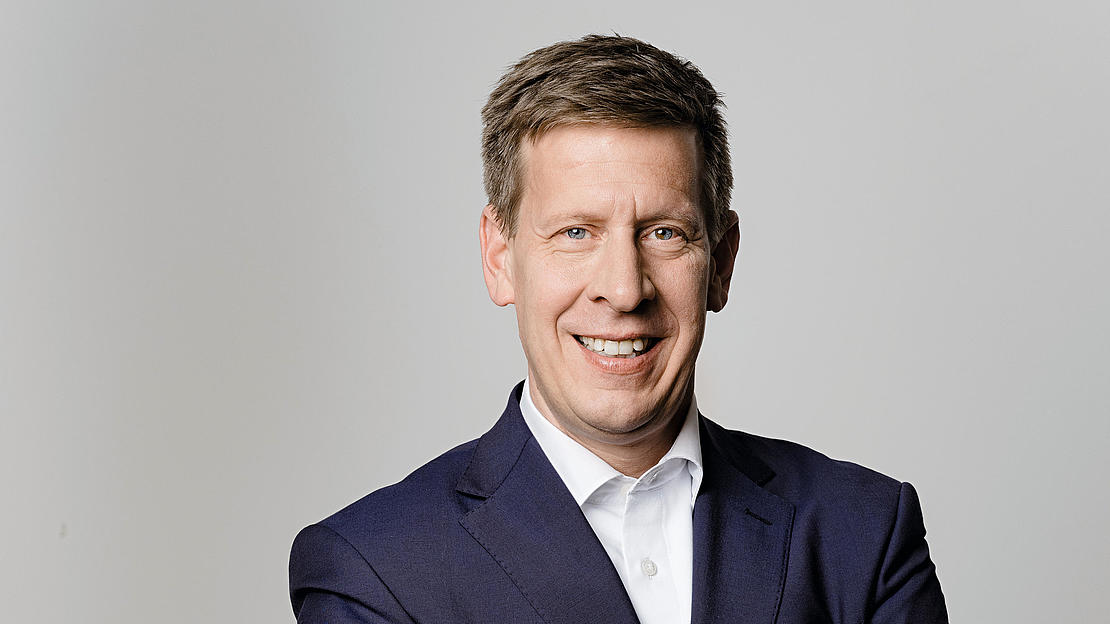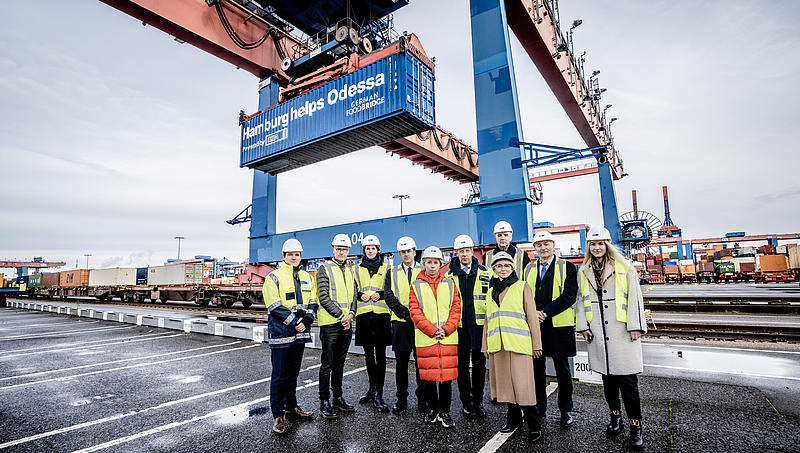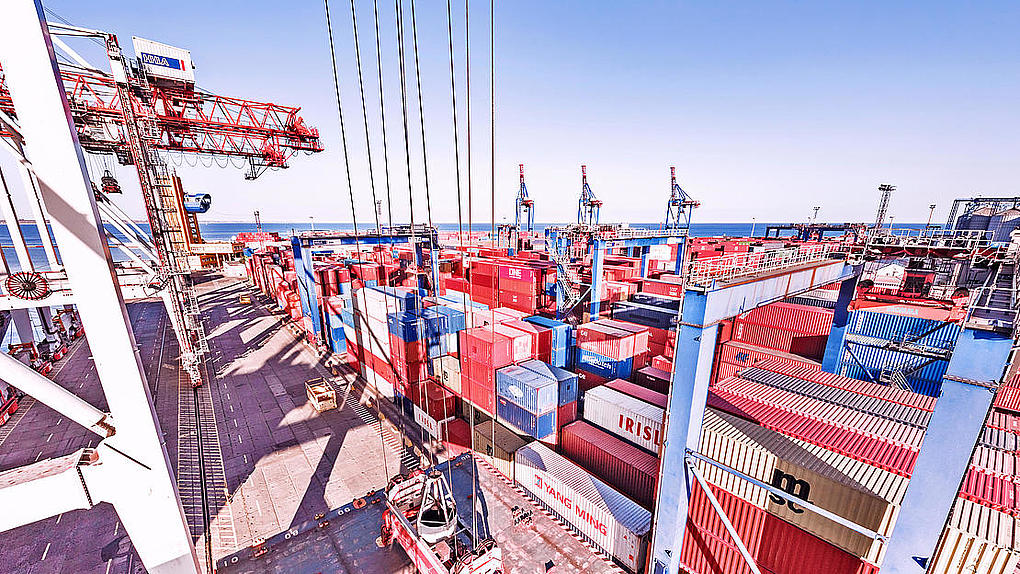Managing the daily crisis
The stern voice of a newsreader blares from Philip Sweens’ clock radio. The manager realises in an instant that he will have to cancel the business trip he had planned for today. Very little of what he has been used to will remain the same. It is 6:00 a.m. on Thursday, 24 February 2022. Early this morning, Russian president Vladimir Putin has ordered his army to march into Ukraine.

Anticipatory risk management is an important component of our business model. We identify and assess risks systematically.
At this moment, when many people’s worlds stop turning, Sweens’ world starts turning faster. As Managing Director of HHLA International, he is responsible for terminals in five countries. Since the beginning of the year, he has also headed the crisis team in charge of the container terminal in the Ukrainian port city of Odessa. HHLA created this team after Putin’s rhetoric became increasingly aggressive and the threat of a Russian invasion became more imminent.
Immediately after waking, Sweens picks up his phone and calls the Managing Director of the terminal in Odessa to ask about the 480 employees there. Had there already been attacks nearby, or did the people on-site already know more than the radio newsreader?
“Then the whole day is a blur,” says Sweens, describing the extraordinary situation. He could never have imagined things escalating to this point. Between a string of video conferences, he and Angela Titzrath, Chairwoman of HHLA’s Executive Board, hold a press conference. Though the situation remains unclear, on this day, Sweens makes many decisions quickly and confidently.

Because he and his colleagues have worked out an emergency plan over the past few weeks, he is prepared. This plan comprises several levels, from normal operations at the Odessa terminal to various dangerous situations. “We defined exactly what we would do as soon as each level arose. That helps you avoid losing time in such situations,” says Sweens.
With the beginning of the war, HHLA immediately raised the danger warning by two levels. The terminal in Odessa was closed by the Ukrainian authorities, operations were stopped, nearly all staff members were sent home, and the evacuation of employees and their families to Hamburg was prepared. The men had to stay behind.
Few German companies are as directly affected by the war in Ukraine as HHLA. Still, the entire German economy has been in crisis mode for more than two years, and is expected to remain there for a few more: first came the coronavirus pandemic, then the supply chain bottlenecks, and now, energy shortages and inflation.
It’s a good thing that HHLA has an experienced crisis manager like Philip Sweens – not only in an acute emergency situation but permanently, because in the world of business, there are risks at all times and everywhere. This realisation has taken hold over the past two years, as Sweens can confirm. “Anticipatory risk management is an important component of our business model. We identify and assess risks systematically.” This is the only way to create a plan B in time – and if necessary, a plan C or plan D.
Published with kind permission of Wirtschaftswoche on June 7, 2022

Ukraine aid fund: HHLA donates one million euros
More and more people are suffering hardship as a result of the war in Ukraine. Hamburger Hafen und Logistik AG (HHLA) is therefore setting up an aid fund worth one million euros.